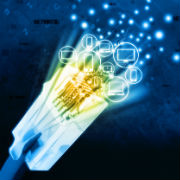How WLAN Vendor Acquisition and Collaboration Affects Clients
WLAN solution vendors often change hands or collaborate and it's important for healthcare organizations to understand how these acquisitions affect them.

- Wireless networks are a significant piece of health IT infrastructure responsible for security and connectivity. It’s important to be informed of any WLAN vendor changes to be sure HIPAA requirements are still being met.

This month, Extreme Networks has acquired the enterprise WLAN business from Zebra Technologies. Extreme Networks is supporting Zebra’s enterprise customers using Zebra’s personnel and technology assets.
Extreme Networks and Zebra aren’t the first WLAN vendors to change hands in the past year. While Extreme only acquired a part of Zebra’s business, three major wireless networking providers were acquired over the past two years:
- Zebra Technologies acquired Motorola in late 2014 for over $3 billion.
- HP acquired Aruba Networks in early 2015 for nearly $3 billion.
- Brocade acquired Ruckus Wireless in early 2016 for just over $1 billion.
Two of the main reasons for vendor acquisitions are that one vendor needs to sell business they find isn’t currently lucrative (e.g., Extreme/Zebra) or a vendor may be interested in another vendor’s technology (e.g., HP/Aruba).
Acquisitions are not always defined as one company taking complete control of the other. Jon Gold of Network World reported that Aruba President and CEO Dominic Orr said, “if anything, the company was more in control of its own destiny than ever.”
Orr views HP's acquisition of Aruba as funding rather than a take-over. “Instead of being absorbed into the broader HP Enterprise ecosystem,” said Orr. “It feels as though Aruba’s been hired to take over the larger company’s wireless efforts.” It could very well end up being business-speak belying an actual takeover.
Acquisitions that keep original teams intact, such as in the case of Aruba, tend to be more successful in the long run. Zeus Kerravala of Network World suggests several of HP’s past WLAN endeavors, Colubris in 2008 and 3Com in 2009, likely failed because the original development teams were absorbed and changed instead of embraced.
WLAN covers more than access points and routers; different vendors have different strengths. Gartner analysts suggest that Aruba is stronger in enterprise grade access points while HP’s WLAN strengths are in access layer software.
Gartner outlines that a complete WLAN solution includes hardware in the form of wireless access points, wired switches, and controllers along with various software service applications including:
- Network management
- Guest access
- Onboarding services
- AAA security/authentication
- Policy enforcement
- Intrusion detection systems/wireless intrusion detection systems
- Location services
- Performance management
- Application visibility
Gartner has separated WLAN vendors into three general groups in their “Critical Capabilities for Wired and Wireless LAN Access Infrastructure” report:
- Vendors that provide their own wired and wireless infrastructure, network applications and services — e.g., Cisco, HP/Aruba, Extreme Networks, Huawei.
- Vendors that focus on more-specic connectivity options and/or address specfic sets of market requirements — e.g., Aerohive, Brocade, Zebra.
- Vendors that use strategic partners to provide portions of the access solutions — e.g., Dell, Avaya, Juniper, Alcatel-Lucent.
Complete WLAN deployments are complex yet capable of leading vendors with different areas of concentration to collaborate with each other occasionally to produce more complete solutions. Juniper Networks frequently collaborates with Aruba (before and after they were acquired by HP) and has also collaborated with Aerohive as well.
Organizations can deploy a WLAN solution made up of different components from different vendors. While they tend to be compatible, collaborations deploy components from different vendors made specifically to work together.
The Gartner report survey conducted last year directly addressed WLAN acquisitions and how customers responded to them. Over 70 percent of respondents prefered a single vendor to deploy their access layer solution. Only about half of end-user clients deployed wired/WLAN solutions from a single vendor, even though 75 percent see using a single vendor as desirable.
Vendor acquisitions can raise concerns for organizations when their tailormade networks are suddenly under new management, but because vendors often embrace the technology of the WLAN vendor they are acquiring, organizations may end up with a more compatible access layer.
Dig Deeper:
- Overcoming Challenges to Rural Health IT Infrastructure
- Challenges Facing Large-Scale Healthcare Wireless Deployment
